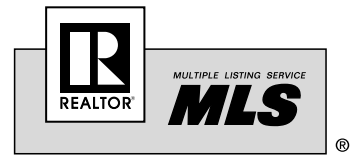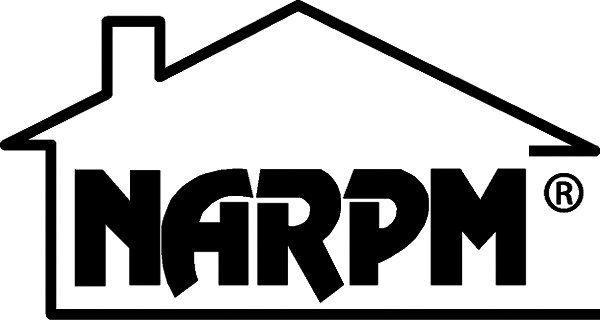Turnkey Property Management in San Antonio: Is It Right For You?

Turnkey property management refers to a comprehensive solution for managing rental properties, including finding tenants, handling maintenance and repairs, collecting rent, and handling evictions.
By utilizing turnkey property management services, property owners can achieve a higher return on investment, as experienced professionals handle the day-to-day responsibilities and minimize downtime and vacancy rates. This allows property owners to sit back, relax, and enjoy the benefits of passive income.
In this article, we'll be exploring the world of turnkey property management, specifically in the
San Antonio area, and what it can offer property owners and investors. From the
comprehensive range of services provided to the commitment to exceptional customer service, we'll examine why turnkey property management is a valuable service that can help you achieve your goals.
So, whether you're a seasoned real estate investor or a first-time landlord, let's dive into the world of turnkey property management in San Antonio!
Why Is Turnkey Property Management So Important?
Turnkey property management is a valuable service because it offers a lot of benefits to those involved with the property. Property owners get to save time by not having to handle all the day-to-day responsibilities themselves.
Property management companies
are experts in the field and can handle everything from maintenance to rent collection. This expertise helps keep costs down and can even increase the property's income. Tenants are also happy because they tend to receive better customer service. To sum it up, turnkey property management is a win-win for everyone involved.

What Services Do Turney Property Managers Provide?
In this section of our article, we will be exploring the various services that turnkey property managers offer to property owners, investors, and tenants. These services are designed to help maximize the returns on a property investment while also ensuring that the property is well-maintained and operated efficiently.
Whether you're a seasoned real estate investor or a first-time landlord, turnkey property management can offer you a range of benefits that can help you achieve your goals. So, let's dive into the various services that turnkey property managers provide!
Marketing and Advertising of Available Rentals
Turnkey property managers market and advertise available rentals by using a combination of online and offline methods to reach potential tenants. This may include listing properties on popular real estate websites, utilizing social media platforms, and placing ads in local newspapers or magazines. They may also hold open houses, post signs at the property, or network with local real estate agents to generate interest and attract qualified tenants.
Screening of Prospective Tenants
Property managers screen prospective tenants to determine their eligibility to rent a property. This may include conducting background checks, verifying income and employment information, checking rental history, and running a credit check. The goal of tenant screening is to identify any potential issues or red flags and make informed decisions about who is allowed to rent a property.
Collection of Rent and Security Deposits
Another thing property managers do is collect rent and security deposits from tenants on behalf of the property owner. This may involve setting up online payment portals for tenants, sending rent reminders, and depositing rent payments into the property owner's account. The security deposit is typically held in a trust account and is used to cover unpaid rent or damage to the property at the end of the tenancy.

Maintenance and Repair Coordination
Property managers will also coordinate maintenance and repair activities to ensure rental properties are well-maintained and safe for tenants. This may involve scheduling regular inspections, responding to maintenance requests from tenants, and hiring contractors or repair personnel as needed. The goal is to minimize downtime, keep tenants happy, and preserve the value of the rental property.
Handling of Tenant Complaints and Evictions
Turnkey property managers handle tenant complaints and evictions by working to resolve disputes and maintain a positive relationship between the tenant and property owner. This may involve mediating conflicts, communicating with tenants and property owners, and following proper legal procedures for eviction.
In some cases, turnkey property managers may also represent the property owner in court. The goal is to enforce the terms of the lease agreement and ensure that both parties are satisfied with the outcome.
Compliance with Local, State, and Federal Housing Regulations
Turnkey property managers handle compliance with local, state, and federal housing regulations by staying informed about the latest rules and regulations and ensuring that rental properties meet all applicable standards.
This may involve conducting regular safety inspections, ensuring that properties are accessible for people with disabilities, and addressing any code violations promptly. The goal is to maintain the property in a safe and compliant manner, protect the health and well-being of tenants, and avoid legal penalties.

Preparation and Distribution of Lease Agreements
Turnkey property managers handle the preparation and distribution of lease agreements by creating legally binding contracts that outline the terms of the tenancy.
This may involve consulting local, state, and federal housing laws, customizing the lease to the specific needs of the property owner and tenant, and ensuring that all necessary disclosures and notices are included. The goal is to provide a clear and comprehensive agreement that protects the interests of both parties and sets expectations for the tenancy.
Maintenance of Accurate Financial Records
Turnkey property managers handle the maintenance of accurate financial records by keeping track of all income and expenses related to the rental property. This may involve tracking rent payments, handling security deposits, paying bills, and generating financial reports for the property owner.
The goal is to ensure that all financial transactions are recorded accurately and that the property owner has access to the information needed to make informed decisions about the management of their rental properties.
Preparation and Submission of rRequired Tax Forms
Turnkey property managers handle the preparation and submission of required tax forms by calculating and reporting the taxable income generated by the rental property.
This may involve preparing and filing federal and state tax returns, paying taxes owed, and ensuring that all necessary documentation is in order. The goal is to minimize the tax burden for the property owner, ensure that taxes are paid in a timely and accurate manner, and avoid any legal penalties for non-compliance.
Regular Property Inspections
Turnkey property managers handle regular property inspections by visiting rental properties regularly to ensure that they are well-maintained, secure, and in compliance with local housing codes.
This may involve checking for damage, verifying that the property is being used in accordance with the lease agreement, and addressing any issues that are discovered. The goal is to protect the property owner's investment, ensure that tenants are living in safe and healthy conditions, and identify any potential problems before they become more serious.

Bluebonnet’s Property Management Services
Bluebonnet Property Management is a trusted provider of turnkey property management services. They offer a comprehensive range of services designed to help property owners, investors, and tenants achieve their goals.
From rent collection and property maintenance to financial management and marketing, they provide a full suite of property management services that are designed to take the hassle out of property ownership.
Property management is a valuable service that can help property owners, investors, and tenants achieve their goals. With a comprehensive range of services and a commitment to providing exceptional customer service, we’ll help you maximize the returns on your investment while ensuring that your property is well-maintained and operated efficiently.
If you're looking for a reliable and experienced turnkey property management company in San Antonio, we’ve got you covered. So, don't wait any longer, contact
Bluebonnet Property Management today and start maximizing the returns on your investment!







